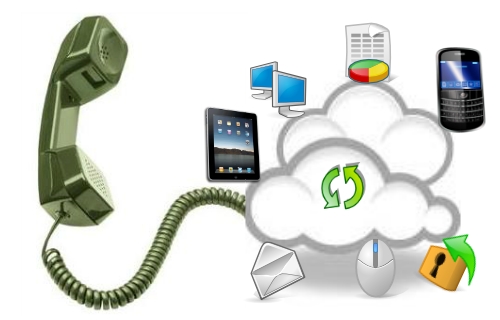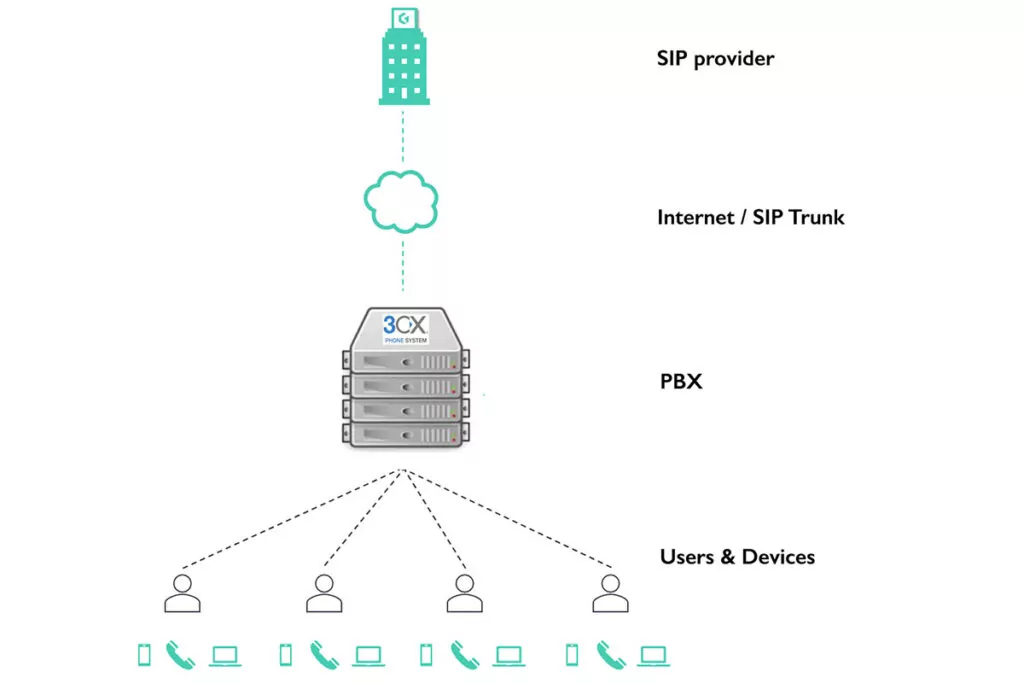NEC Phone Systems Houston TX: Raising Your Service Connectivity with Professional Solutions
Wiki Article
The Advancement of Phone Equipments: From Landlines to VoIP
The world of phone systems has undergone an exceptional improvement for many years. From the standard landline systems that controlled households and businesses for decades, we have actually currently transitioned to the period of Voice over Internet Procedure (VoIP) This development has reinvented the way we communicate, providing a more affordable and versatile service. In this article, we will discover the trip of phone systems, starting from the very early telephone modern technology to the intro of digital phone systems, and lastly, the introduction of VoIP. We will certainly also discuss the advantages of using VoIP modern technology, such as raised scalability and mobility. As we look into the future of phone systems, it becomes noticeable that VoIP is here to stay, forming the method we attach and interact in the digital age.Early Telephone Modern Technology
Early telephone innovation's development played a crucial duty in reinventing interaction approaches. At the center of this technical development was Alexander Graham Bell, that is attributed with designing the telephone in 1876. Bell's development noted a significant landmark in the background of interaction, as it permitted real-time, long-distance discussions to occur.The very early telephone systems relied upon landlines, which were physical connections in between 2 telephones via a network of cords. These landlines allowed voice signals to be transmitted over lengthy ranges, bringing people closer together and promoting immediate communication. While the preliminary telephone systems were restricted in scope and accessibility, they laid the structure for the growth of advanced interaction innovations in the future.
One of the vital developments in very early telephone modern technology was the intro of the switchboard system. The switchboard permitted several telephones to be connected to a central exchange, allowing customers to make phone call to different locations. This innovation greatly expanded the reach and access of telephone communication, as it got rid of the requirement for a direct physical link in between two telephones.
Change to Digital Phone Solutions
The innovation of telephone innovation brought about the change from landlines to electronic phone systems, marking a considerable shift in the way communication was conducted. Digital phone systems, likewise called Voice over Internet Protocol (VoIP) systems, make use of net links to transfer voice signals as opposed to traditional copper wires. This transition to electronic phone systems has actually produced numerous benefits for companies and individuals alike.Among the crucial benefits of digital phone systems is cost financial savings. VoIP systems eliminate the need for several phone lines, as all phone calls are sent online. This causes minimized facilities costs and reduced month-to-month costs. Additionally, global phone calls can be made at dramatically reduced prices contrasted to conventional phone systems.
Another advantage of digital phone systems is improved performance. Digital phone systems can conveniently integrate with various other company interaction tools such as e-mail and instantaneous messaging, offering a linked and streamlined communication experience.
Introduction of Voip Innovation
With the introduction of VoIP technology, the landscape of phone systems began to move in the direction of a much more efficient and affordable interaction service. VoIP, or Voice over Web Method, enables customers to make call online rather than conventional landlines. This modern technology converts voice signals into electronic packets and transmits them over data networks, getting rid of the need for dedicated phone lines.

One more advantage of VoIP is its adaptability and scalability. With conventional phone systems, adding or removing phone lines can be a expensive and troublesome process. Nonetheless, with VoIP, customers can quickly add or eliminate lines as needed, making it a much more scalable remedy for businesses of all sizes.
Moreover, VoIP technology gives a large range of functions that enhance interaction effectiveness. These attributes include voicemail to email transcription, call forwarding, seminar calling, and auto-attendant systems. These attributes not just boost productivity yet additionally make communication much more practical and available.
Benefits of Utilizing Voip
Just how does VoIP innovation offer significant advantages over typical phone systems? VoIP, or Voice over Net Protocol, has revolutionized the method we communicate by supplying countless advantages that traditional phone systems simply can not match.Unlike typical phone systems that rely on physical phone lines, VoIP utilizes a net connection to transfer voice information. Furthermore, VoIP systems typically use affordable prices strategies that include limitless domestic calls, further lowering communication expenditures.
Secondly, VoIP technology supplies raised versatility and scalability. Typical phone systems are limited by the number of physical phone lines, making it pricey and challenging to add or remove lines as required. In contrast, VoIP enables for very easy scalability, permitting organizations to include lines or extensions without the need for added equipment.
Another advantage of VoIP is its abundant features and integrations. VoIP systems frequently include a variety of innovative functions such as voicemail, call forwarding, phone call recording, and automated assistants. These features boost productivity and customer support. VoIP can perfectly incorporate with other communication devices like email, instant messaging, and video clip conferencing, giving an unified interaction experience.
Lastly, VoIP this link deals boosted wheelchair and access. With VoIP, individuals can make and receive phone calls from anywhere with a net connection, permitting remote work and business continuity. This degree of accessibility is specifically helpful for businesses with remote workers or multiple office locations.
Future of Phone Systems
As innovation proceeds to advancement, the future of phone systems holds the guarantee of even greater development and seamless communication. With the quick development of artificial knowledge (AI), online fact (VR), and the Web of Things (IoT), the possibilities for phone systems are expanding past conventional voice telephone calls.One secret facet of the future of phone systems is the combination of AI. AI-powered virtual aides, such as Siri and Alexa, have actually already ended up being commonplace in our homes. Houston Phone Systems Houston TX. In the future, these aides will likely play a bigger duty in handling our telephone call, organizing conferences, and also conducting conversations on our behalf. AI will likewise allow innovative phone call routing Houston Phone Systems Houston TX and filtering, making certain that calls are directed to the ideal individual or department without the requirement for hands-on treatment.
An additional location of growth is the integration of phone systems with other interaction networks. With the surge of messaging applications and social networks platforms, users are progressively shifting in the direction of text-based communication. In the future, phone systems will seamlessly integrate voice, video, and text-based interaction channels, allowing individuals to change between them effortlessly.

Verdict
In verdict, the evolution of phone systems from landlines to VoIP modern technology has revolutionized communication. Very early telephone innovation laid the foundation for digital phone systems, which paved the way for the intro of VoIP. The benefits of utilizing dig this VoIP, such as cost-effectiveness and flexibility, make it a recommended choice for several individuals and services. As technology remains to advance, the future of phone systems holds the capacity for further improvements and improvements in interaction effectiveness.
In this article, we will certainly discover the journey of phone systems, beginning from the very early telephone technology to the intro of electronic phone systems, and ultimately, the development of VoIP. Digital phone systems, likewise understood as Voice over Net Protocol (VoIP) systems, utilize web links to send voice signals instead of traditional copper cables. With traditional phone systems, eliminating or adding phone lines can be a troublesome and pricey process. Unlike traditional phone systems that count on physical phone lines, VoIP uses an internet link to transmit voice information. Conventional phone systems are restricted by the number of physical phone lines, making it tough and pricey to include or remove lines as needed.
Report this wiki page